
Get a closer look at the ESPR working plan
Get a closer look at the ESPR working plan
Discover the ESPR working plan's impact on textiles, sustainability criteria, an...
Read more

Get a closer look at the ESPR working plan
Discover the ESPR working plan's impact on textiles, sustainability criteria, an...
Read more

TechThreads 2025: Turning Vision into Action
TechThreads 2025 emphasized the need for collaboration and technology in driving...
Read more

Making systems talk with standard integrations
Discover the importance of integrations in fashion tech to enhance data flow, re...
Read more

Strong partnerships, strong data
Discover how strong supplier relationships are crucial for meeting new data comp...
Read more

The Survival of the Fashion Industry
Fashion brands must adapt to new sustainability regulations using technology for...
Read more

Your Bill of Materials holds everything
Discover the significance of a detailed Bill of Materials in fashion for complia...
Read more

#DelogueUncovered: Admin Module
Explore how Delogue PLM's Admin Module lays the foundation for efficient, scalab...
Read more

#DelogueUncovered: Collaboration
Discover how Delogue PLM enhances collaboration with suppliers, ensuring quality...
Read more

Putting circularity at the core of design decisions
Exploring how integrating circularity into design can extend product lifespans a...
Read more

Designing for Longevity with Sika Footwear
Discover how Sika Footwear uses data-driven strategies to enhance product longev...
Read more

Building quality at the core of the product
Discover how integrating PLM systems into product development ensures high quali...
Read more

The connection between ESG and technology
Learn how fashion brands can leverage data and technology to meet ESG goals, str...
Read more

The synergy between PLM- and ERP-systems
Discover how integrating PLM and ERP systems can streamline workflows, ensure da...
Read more

A Strong Baseline: Bridging Your Data and Goals
A solid data foundation is essential for businesses navigating today’s regulator...
Read more

#DelogueUncovered: Reports
Discover how Delogue PLM's reporting tools can help you manage style data, sampl...
Read more

2025 Expectations: What can we expect for the year of infrastructure?
At Delogue we believe that 2025 will be filled with 3 important focus areas: Col...
Read more

Why Your Data Foundation Starts with a PLM System
A solid data foundation is essential for businesses navigating today’s regulator...
Read more

Building The Perfect Tech stack
Discover how Delogue PLM and Tex.Tracer are revolutionizing fashion sustainabili...
Read more

#DelogueUncovered: Custom Fields and Risk Assessment
Explore how to use custom fields in Delogue PLM and understand the importance of...
Read more

Preparing for GPSR Compliance
Learn how to navigate the updated General Product Safety Regulation (GPSR) and e...
Read more

#DelogueUncovered: Addressing ESG, Sustainability, and Supply Chain Solutions
Explore the latest insights on ESG challenges, sustainable materials, and supply...
Read more

#DelogueUncovered: Key Questions About PLM, ERP and Certification Management
Discover the benefits of PLM systems, differences between PLM and ERP, and how P...
Read more

How well do you really know your suppliers?
Explore the importance of supply chain transparency and traceability in the fash...
Read more

Supply Chain Management in Fashion - Key to Competitiveness
Effective supply chain management is crucial for fashion brands to stay competit...
Read more

Three Essential Areas for Survival
Essential strategies for businesses to comply with evolving sustainability regul...
Read more
The End of No Transparency: Transforming the Fashion Business Model with EU Regulations
Discover how EU regulations are transforming the fashion industry with sustainab...
Read more

The ESPR: A New Era for Sustainable Products
On July 18th 2024, The ESPR was officially passed, introducing significant chang...
Read more

The Digital Product Passport - Where to get started?
Discover how the fashion industry is adapting to new regulations with the Digita...
Read more
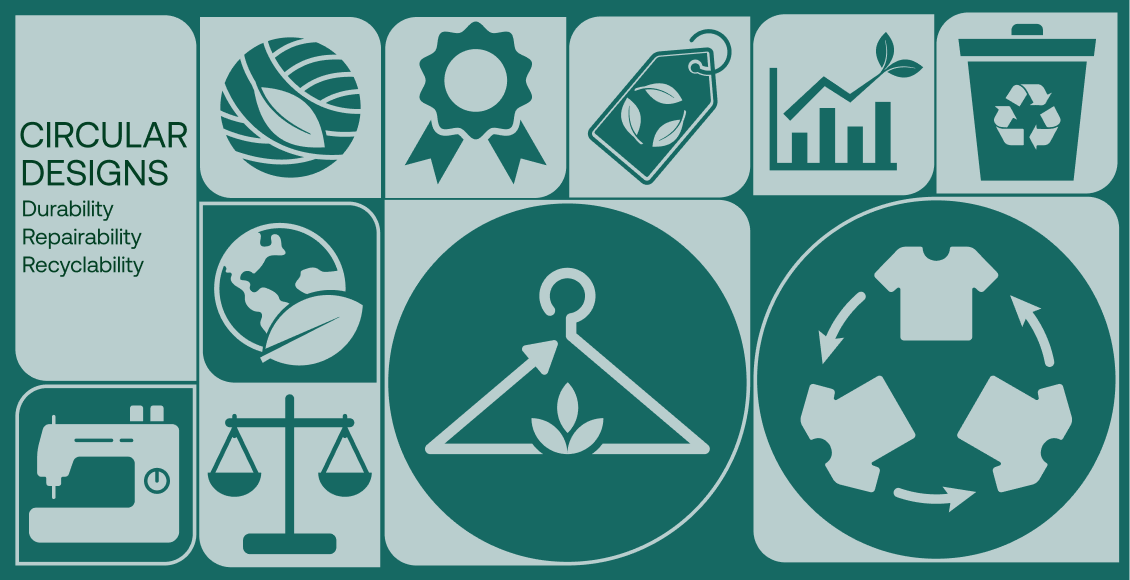
Designing for Circularity
Learn from textile industry expert Marie-Louise Rosholm about designing for circ...
Read more
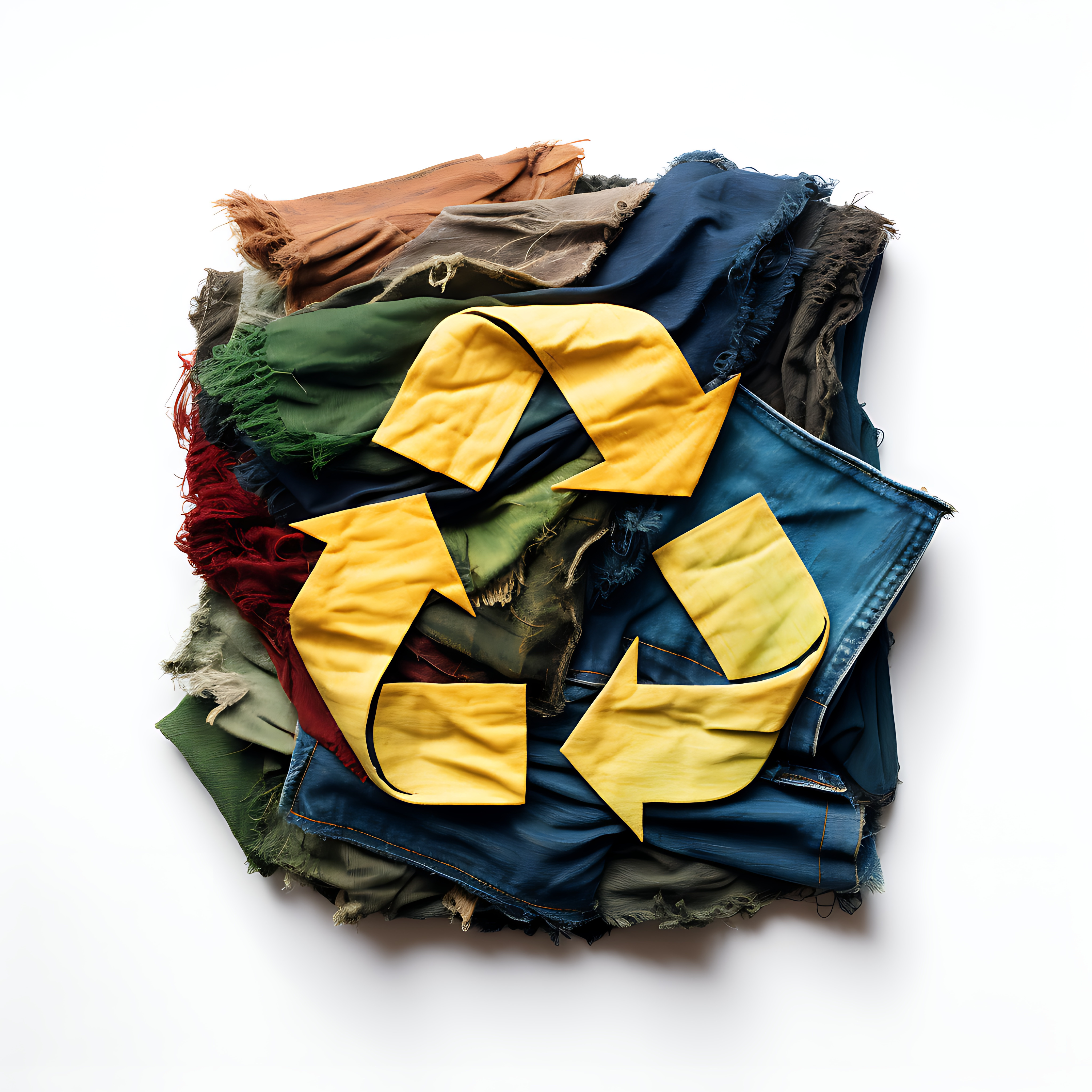
Embracing Change: How Delogue's 2024 Roadmap Aligns Your Brand with Future ESG Directives
Discover how Delogue's 2024 roadmap aligns your brand with future ESG directives...
Read more

Sustainable Fashion: How the EU textile legislation impacts the clothing industry
Discover how the new EU textile legislation is reshaping the fashion industry an...
Read more

Managing Your Products in Excel Could Threaten Your Company’s Future
Learn why managing your products in Excel could threaten your company's future. ...
Read more
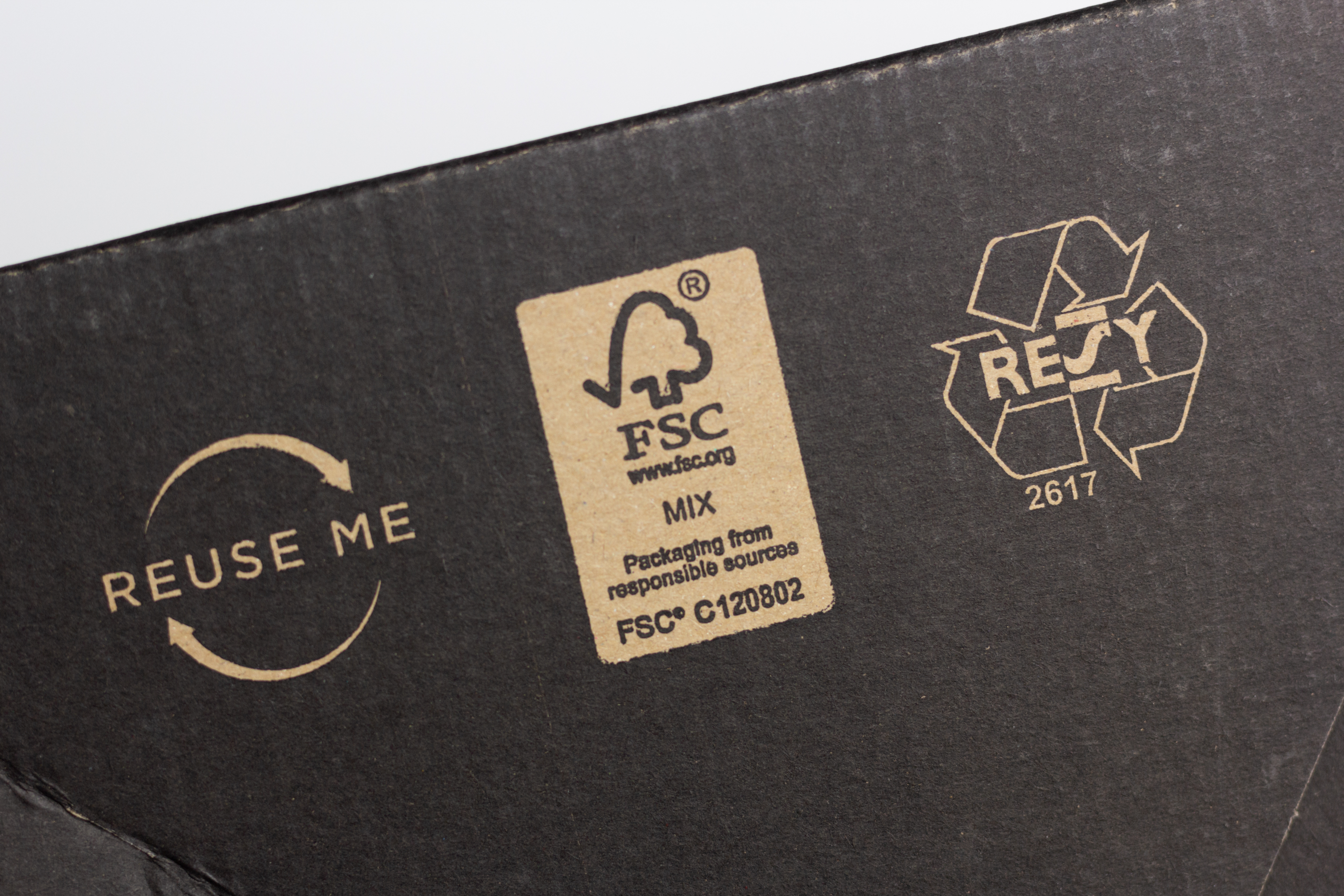
Understanding the Purpose of SC and TCs
Discover the importance of Scope and Transaction Certificates in the apparel ind...
Read more
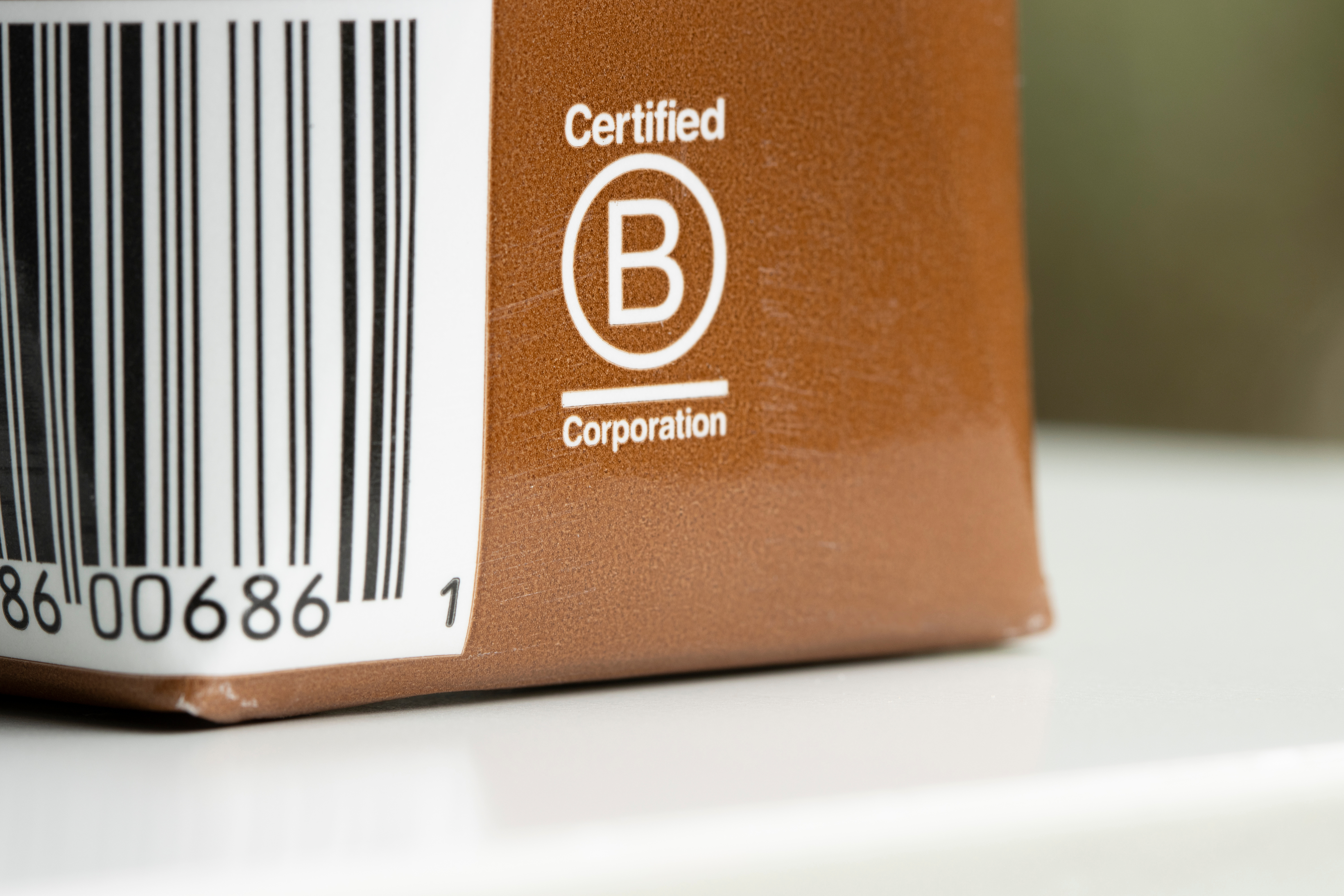
Managing Apparel Industry Certificates
Discover the significance of certificates in the apparel industry and the transf...
Read more

Cloud-Based PLM Software for Fashion and Apparel: The Ultimate Guide
Learn how cloud-based PLM software can improve productivity, reduce costs, and s...
Read more

Streamlining apparel production across a multi-brand portfolio
Discover how apparel supplier Tatari improved their workflows and communication ...
Read more

Supporting supplier collaboration with an inclusive PLM
Shijiazhuang Runni Trading Company, explains how working with Delogue PLM helps ...
Read more

5 reasons to choose Delogue
How a PLM accelerates your growth and when to know the best time to invest. Our ...
Read more

A Guide to Integrating Delogue to your ERP
Integrating Delogue to your ERP explained. A seamless addition to your best-of-b...
Read more
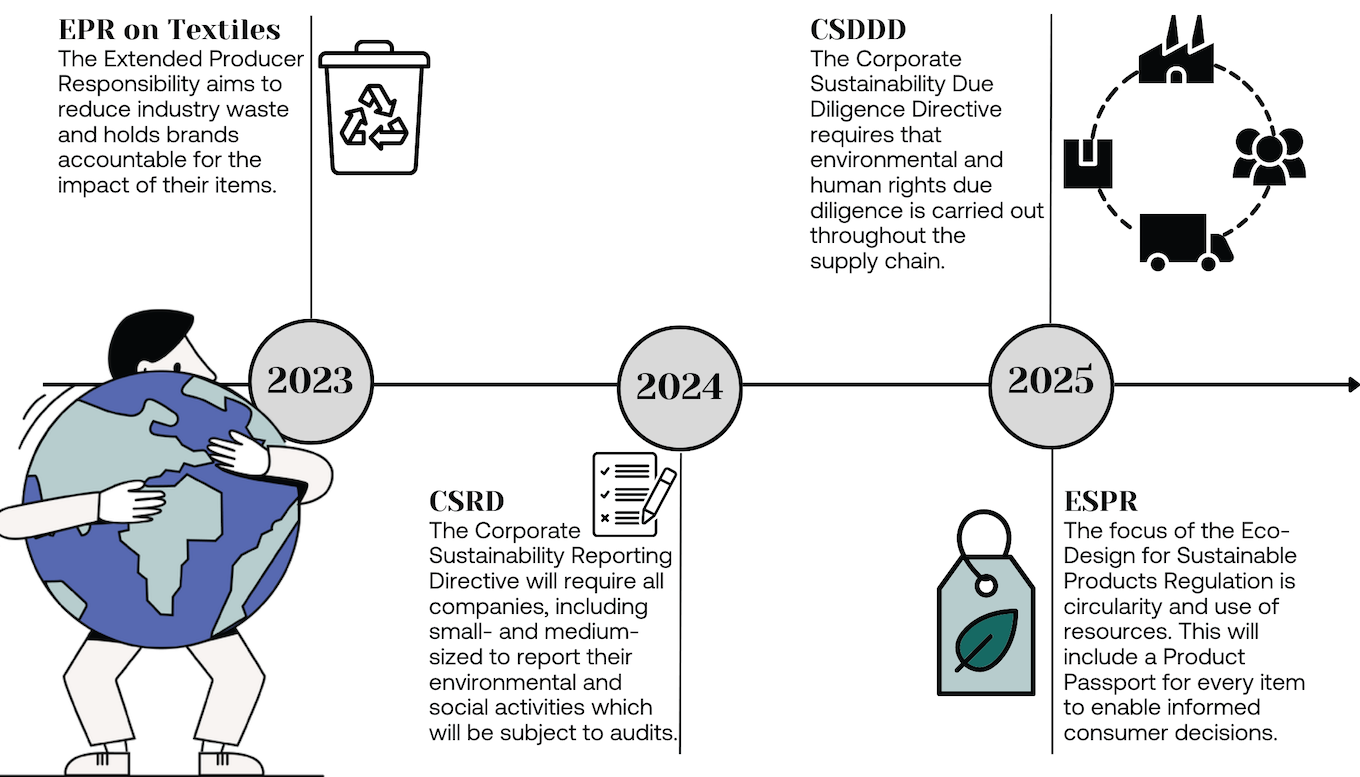
EU Directives Impacting the ESG Fashion Agenda - 2023
2023 is set to become the year of ESG in the fashion industry. Keep up to date w...
Read more

PLM vs ERP in Fashion: What’s the difference and which to start with?
An in-depth explanation of the difference between PLM vs. ERP in the fashion and...
Read more

How to successfully negotiate sample/bulk delays in a volatile supply chain
Learn how to negotiate sample delays in an increasingly volatile supply chain by...
Read more

Best-of-breed tech stack article
Learn how outdated legacy- and in-house systems affect your business performance...
Read more

EU Due Diligence Article
Find out if and how the new EU Due Diligence Directive will affect your operativ...
Read more

3D Awareness Interview
Interview with 3D expert, Frederik Smed of Bestseller, for the right time to imp...
Read more

Bestseller 3D case story - Delogue PLM
Learn how Bestseller uses 3D as an early adopter and the benefits and learnings ...
Read more

The Bill of Materials (BoM) – the hidden hero of brand sustainability
Why an accurate Bill of Materials (BoM) and a PLM matter for fashion sustainabil...
Read more

The Ultimate PLM ROI Calculator
Discover the power of the Ultimate PLM ROI Calculator. Streamline your fashion c...
Read more

The Pursuit of the Perfect Product
How Integrating a PLM & QC software enriches both your product data & product qu...
Read more

How Digitalisation ramped up revenue growth for German streetwear brand, LFDY
Explore how German streetwear brand, LFDY boosted popularity with more complex ...
Read more

Why Supply Chain Traceability Will Determine the Future of Fashion Brands
Learn more about the importance of traceability for the future success of fashio...
Read more

Buying Manager at Minimum - A Day in the Life of Kristina Nissen
Delogue PLM asks Kristina Nissen what her daily routine looks like, as Buying Ma...
Read more

Sustainable Transformation for Fashion Brands
Anne Katrine Blirup from SustainaCompany shows how an apparel and fashion brand ...
Read more

Meet the New Wave of Digital Designers Changing the Industry
To keep pace with technology in fashion design, fashion schools are preparing a ...
Read more

Head of Design at ARKK - A Day in the Life of Mette Engelbrecht
Delogue PLM explores the daily tasks of Mette Engelbrecht, Head of Design & Prod...
Read more

What is 3D Fashion Software?
A complete guide to 3D Fashion Software including what are the benefits, when it...
Read more

Fashion Technician at hummel - A Day in the Life of Maibritt Simonsen
Maibritt is a fashion technician at the German sportswear company hummel. Delogu...
Read more

Beyond Tier 1 - Supplier collaboration facilitates a transparent supply chain
Lisa Herrmann, shares her views on supplier collaboration – a significant soluti...
Read more

How to Spec a Garment with POM: A Guide to Perfect Measurements
Learn how to spec a garment with POM and communicate the right measurements to e...
Read more

N'Fellows: Building the virtual future of fashion
Discover the benefits of virtual showrooms as we take a closer look at the brand...
Read more

PLM Supports Sustainability in the Fashion Industry
Discover how the integration of a PLM supports sustainability. Learn how to redu...
Read more
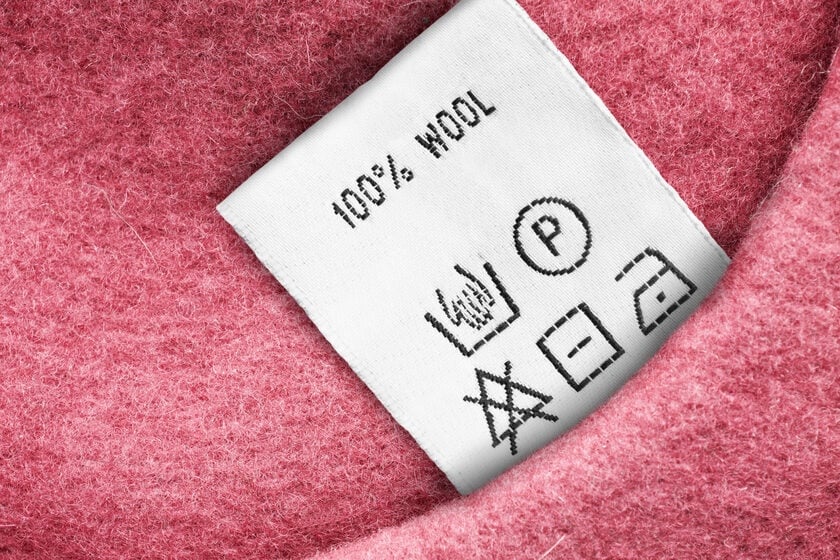
A quick and complete guide to care labels
Legally, every item of clothing needs a care label before it is available to the...
Read more

5 Reasons to Embrace 3D Fashion Design
Discover 5 reasons why implementing 3D fashion design is a good idea, including ...
Read more

Three Key Learnings for Fashion Brands from the Pandemic
Get insights into how the pandemic affected the fashion industry, how fashion br...
Read more

Outsourcing 3D samples with Mojomoto
Outsource your 3D fashion designs with Mojomoto. They help you stay ahead of the...
Read more

Digital Fashion Revolution: Exploring Sustainable Guidelines
Uncover the fashion industry's digital revolution and the importance of sustaina...
Read more

Cloud-based software and its 7 Benefits
What is a cloud-based software and what are its advantages? How can your company...
Read more

Equestrian clothing brands streamline their workflow with Delogue PLM
Equestrian clothing brands find themselves embracing the digital transformation ...
Read more

How Digital Fabrics Promote Transparency - Delogue PLM
Digital Fabrics make the industry more inclusive and apparel companies are able ...
Read more

What is the connection between 3D software and a PLM?
A PLM helps fashion brands in their 2D to 3D software transformation by provding...
Read more
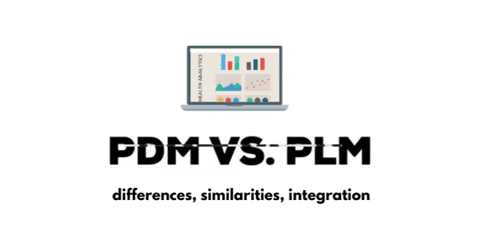
PDM vs PLM: What is the difference?
PDM vs PLM? Everything to know about a PLM (Product Lifecycle Management Softwar...
Read more
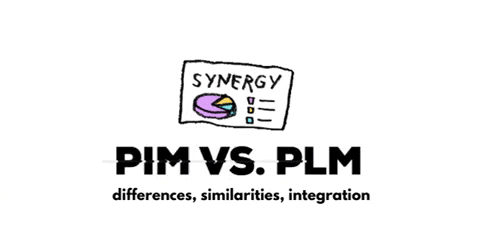
PIM vs. PLM - What is the difference?
What is PIM? What is PLM? Is it the same? We unveil its differences and similari...
Read more

Build strong relationships with your suppliers using a PLM
To learn how to achieve close collaboration with your suppliers, we discuss the ...
Read more

A fashion collection created entirely with 3D samples
Already using 3D virtual sampling software with their suppliers, are VILA, and e...
Read more

Delogue PLM announces partnership with German INTEX
We team up with the German fashion software INTEX to share and combine their exp...
Read more
7 Fashion Brands Share Learnings from a 100% Digital Fashion Week
Seven Delogue customers share the inspiration behind the Autumn / Winter collect...
Read more

Dispelling the Sustainable Fashion Myth with Professor Pedersen
In conversation with CBS Professor Esben Pedersen, learning more about fashion, ...
Read more
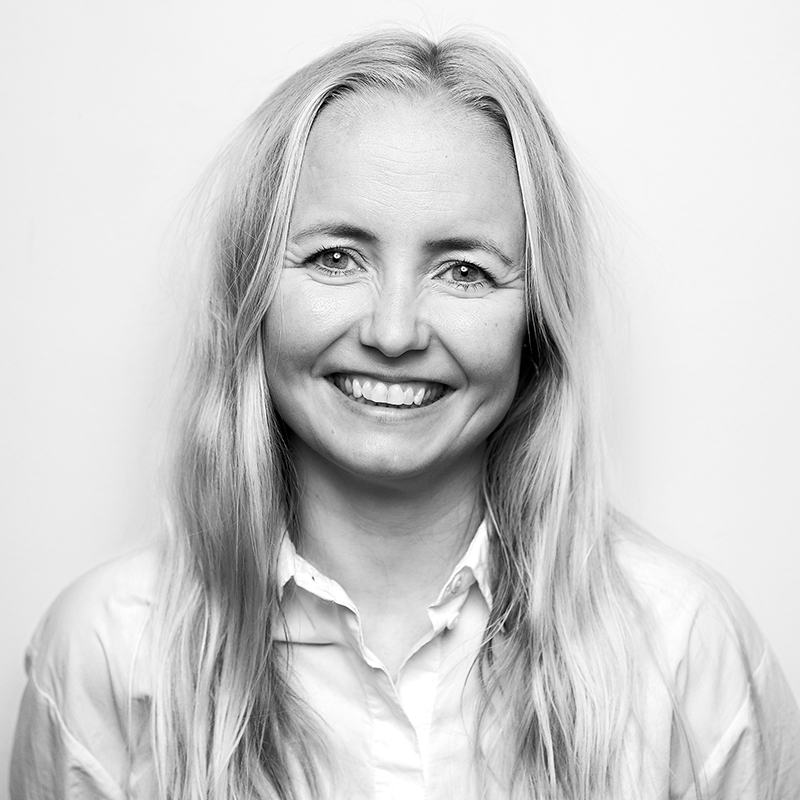
It's about changing our mindset: it's called responsible business
Sustainability or responsible business? Two experts discuss with us their approa...
Read more
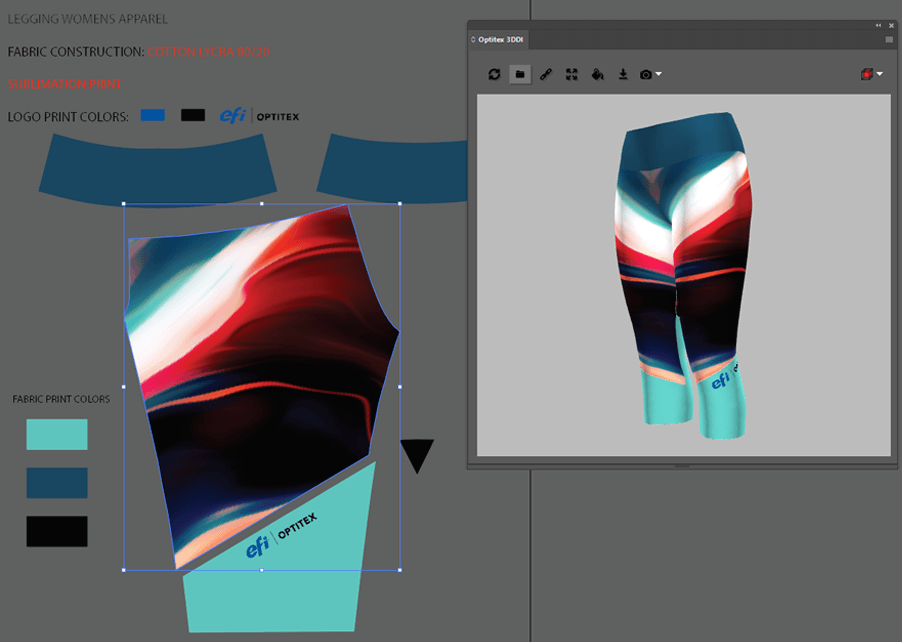
The Best 3D Fashion Software 2023: CLO3D vs Browzwear vs Optitex vs Style3D
What's the difference between CLO, Browzwear, Optitex and Style3D? - Your comple...
Read more

What is PLM and why is it essential for Fashion & Apparel Brands?
What is PLM software, its importance and benefits for your fashion & apparel bra...
Read more

Analytics Feature Tutorial
Learn with Lisa how to work with the Analytics Feature in the Delogue PLM platfo...
Read more

How 3D technology can boost your sales and marketing
3D technology is here to stay. The question is not anymore about if it is coming...
Read more

Analytics feature – the next best thing to a crystal ball
In the age of analytics, Delogue is not staying behind. Our purposely-built feat...
Read more
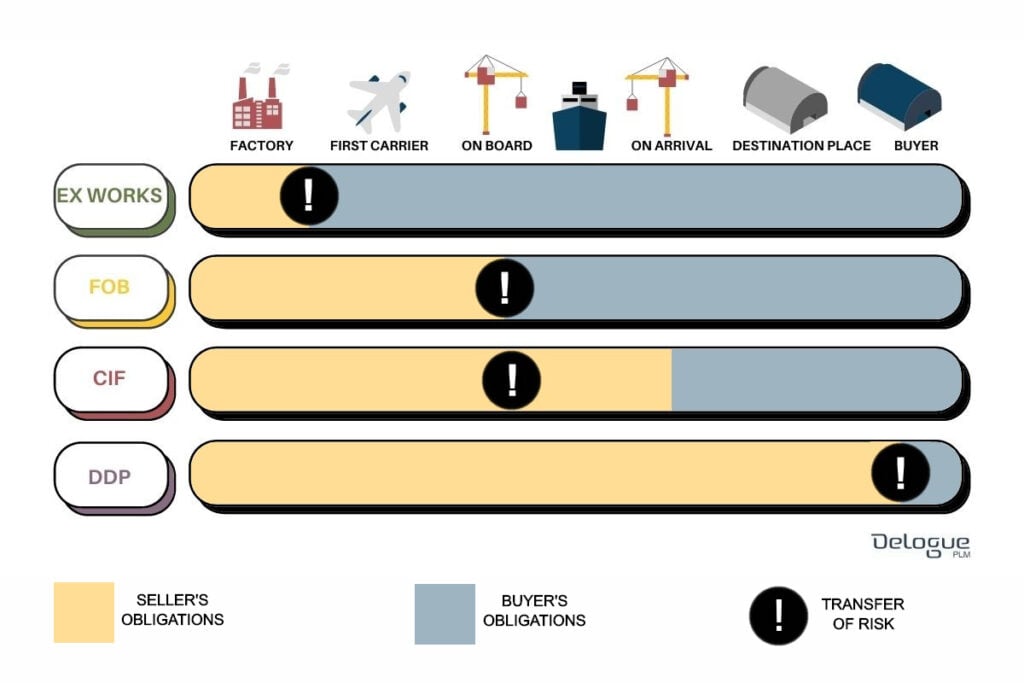
Delivery Terms in Fashion
Everything you need to know about the Incoterms and delivery terms used in the f...
Read more
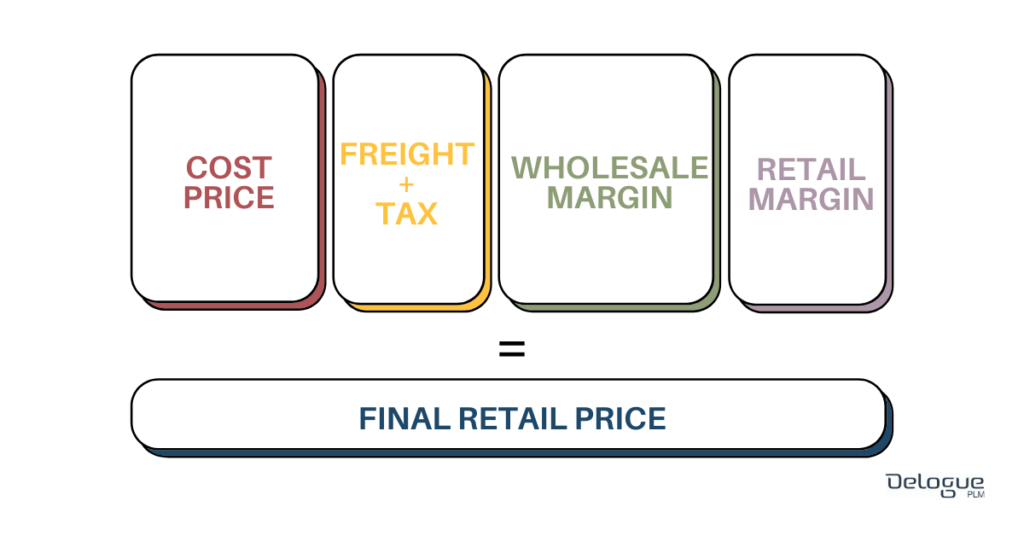
Garment Costing and Pricing
What's a MOQ? Should you choose CIF or FOB? Bottom-up or top-down approach? Here...
Read more

Empowering Businesses with Delogue: Adapting to Remote Work
Discover how Delogue empowered businesses during the pandemic by centralizing co...
Read more

Understanding Payment Terms: A Guide for Supplier Selection
Learn about the different payment terms for supplier selection in the apparel in...
Read more

How to make Collection Overviews with our Thumbnail Print
Delogue introduces a new feature to print Collection Overviews automatically tha...
Read more

Enhancing E-commerce Success: The Importance of Optimized Product Data
Discover the importance of optimizing product data for e-commerce success. Learn...
Read more

Optimize Remote Work Efficiency with Delogue: A Case Study with hummel
Learn how Delogue PLM streamlines remote work for fashion companies like hummel....
Read more

Accelerate Your Digital Transformation with Delogue PLM + SPY System
ARKK Copenhagen and KnowledgeCotton Apparel explain how they use a combination o...
Read more
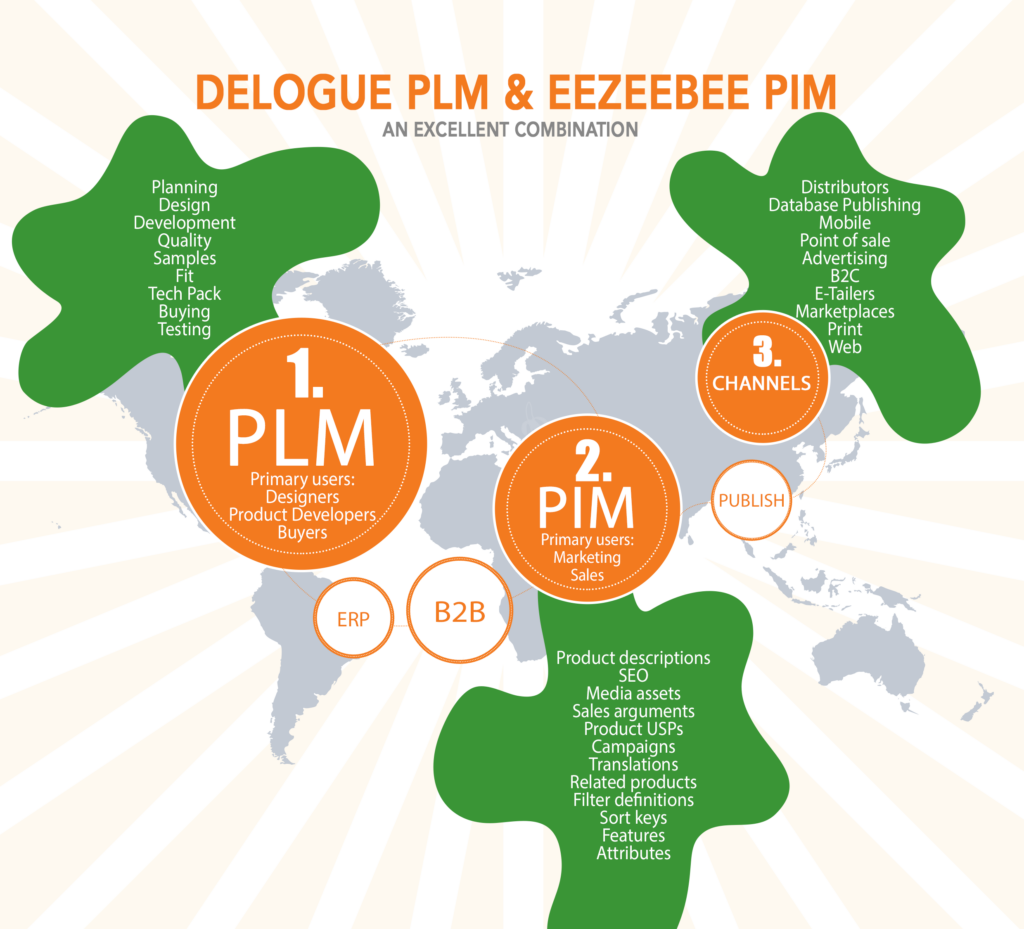
Seamless Integration: Import Style Data to Eezeebee PIM from Delogue PLM
Streamline your product data management process with the seamless integration of...
Read more

Maximizing Efficiency and Profitability with PLM Systems
Optimize operations, increase profitability, and enhance productivity with a PLM...
Read more

Streamline Collection Planning with PLM for Optimal Results
Discover how PLM can revolutionize collection planning, minimize cancellations, ...
Read more

Streamlining Buyer Work with PLM: Maximizing Efficiency and Accuracy
Maximize fashion buyer margins with advanced strategies, technology, and collabo...
Read more

The Benefits of Using PLM Software for Strong Supplier Relationships
Discover how Product Lifecycle Management (PLM) software can help manufacturers ...
Read more
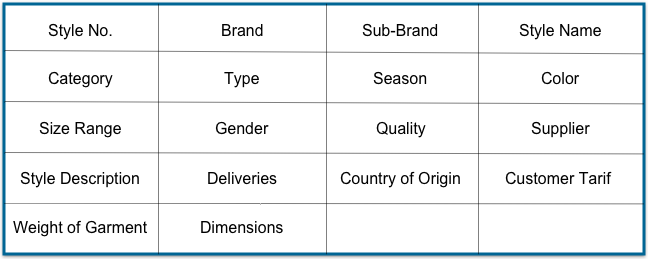
Improve time to market with seamless integration from Delogue to SPY
Save valuable time by importing product data directly into Spy system with Delog...
Read more

Traceability in the fashion supply chain
A sustainbility strategy requires transparency and traceability across the fashi...
Read more

Optimize Assortment Planning with Delogue PLM Analytics: Data-driven Insights
Discover how Delogue PLM Analytics can revolutionize your assortment planning pr...
Read more

Why Fashion Companies Benefit From PLM Software
How fashion companies can reduce costs and improve productivity by using PLM sof...
Read more

How PLM software can enable small to mid-size fashion companies to grow faster
Learn how small fashion companies with limited resources can grow faster by depl...
Read more

The Price of Outdated Processes: Calculating the Cost of Not Having a PLM Solution
Learn how investing in a PLM can streamline operations, reduce costs, and drive ...
Read more

Supply Chain Disruption: How PLM can Secure Business Continuity
Learn how PLM can help apparel and lifestyle brands navigate supply chain disrup...
Read more

How PLM enables working remote in a crisis
How PLM software can enable fashion and apparel brands regardless of size and se...
Read more
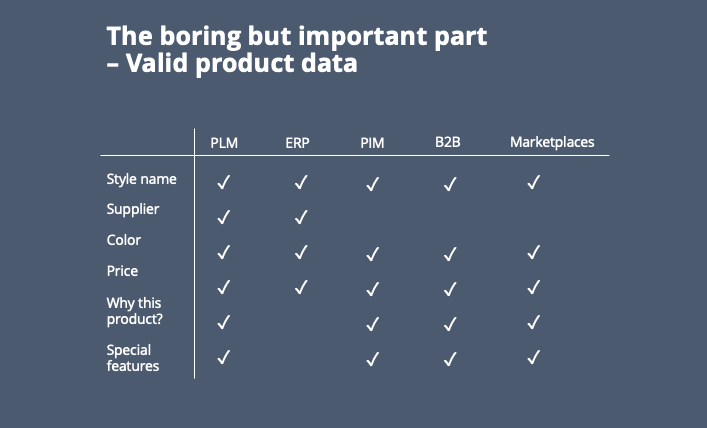
5 simple steps to make the sales and marketing teams happy
Learn how to unify product development, sales, and marketing for success. Discov...
Read more
Sustainability is not a trend - it's a movement
Sustainability is not a trend - it's a movement
Read more

Improve Time to Market with Centra and Delogue PLM
Improve time to market by integrating Delogue PLM with Centra. Get structured pr...
Read more

Unlocking Success: Mastering Global Collaboration and Knowledge Sharing with Delogue
Delogue supports clients in attaining their product development, data flow and c...
Read more
Filter
Filter

Discover the ESPR working plan's impact on textiles, sustainability criteria, and the future of fashion industry regulations from 2025 to 2030.

TechThreads 2025 emphasized the need for collaboration and technology in driving sustainable change in the fashion industry. It highlighted the importance of proactive innovation and human-centered systems.

Discover the importance of integrations in fashion tech to enhance data flow, reduce manual tasks, and improve overall efficiency in your tech ecosystem.

Discover how strong supplier relationships are crucial for meeting new data compliance demands in the fashion industry. Learn why collaboration and trust are key to future success.

Fashion brands must adapt to new sustainability regulations using technology for transparency, efficiency, and compliance, ensuring future competitiveness in a rapidly evolving industry landscape.

Discover the significance of a detailed Bill of Materials in fashion for compliance, collaboration, and product development efficiency.

Explore how Delogue PLM's Admin Module lays the foundation for efficient, scalable product development by centralizing and standardizing essential data.

Discover how Delogue PLM enhances collaboration with suppliers, ensuring quality, efficiency, and transparency in product development through centralized communication and data management tools.

Exploring how integrating circularity into design can extend product lifespans and support sustainability through durability, quality craftsmanship, and user engagement.

Discover how Sika Footwear uses data-driven strategies to enhance product longevity and quality through integrated tech solutions.

Discover how integrating PLM systems into product development ensures high quality, reduces costs, and supports sustainability through structured processes and data-driven decisions.

Learn how fashion brands can leverage data and technology to meet ESG goals, streamline compliance, and integrate sustainability into their business strategy effectively.

Discover how integrating PLM and ERP systems can streamline workflows, ensure data consistency, and build a strong foundation for future regulatory and operational challenges in the fashion industry.

A solid data foundation is essential for businesses navigating today’s regulatory and operational demands. Foundation is a PLM system.

Discover how Delogue PLM's reporting tools can help you manage style data, sample requests, and item inventories efficiently with expert tips for enhanced reporting.

At Delogue we believe that 2025 will be filled with 3 important focus areas: Collaboration, technology and regulations.

A solid data foundation is essential for businesses navigating today’s regulatory and operational demands. Foundation is a PLM system.

Discover how Delogue PLM and Tex.Tracer are revolutionizing fashion sustainability through seamless product data management and supply chain transparency.

Explore how to use custom fields in Delogue PLM and understand the importance of proactive risk assessment for compliance and product safety.

Learn how to navigate the updated General Product Safety Regulation (GPSR) and ensure compliance with essential risk assessments before the December 2024 deadline in our latest blog.

Explore the latest insights on ESG challenges, sustainable materials, and supply chain transparency with Delogue PLM in our new #DelogueUncovered series.

Discover the benefits of PLM systems, differences between PLM and ERP, and how PLM aids compliance and certification management for efficient product development.

Explore the importance of supply chain transparency and traceability in the fashion industry, highlighting key insights from Delogue's recent webinar.

Effective supply chain management is crucial for fashion brands to stay competitive, ensuring transparency, compliance, and long-term partnerships amid evolving regulations. Discover key insights from industry experts.

Essential strategies for businesses to comply with evolving sustainability regulations: Circularity, Transparency, and Environmental Impact. Ensure long-term survival by integrating these into your operations.
Discover how EU regulations are transforming the fashion industry with sustainability and transparency at the forefront. Learn about the EU Taxonomy and CSRD's impact on businesses.

On July 18th 2024, The ESPR was officially passed, introducing significant changes aimed at promoting sustainability across the EU.

Discover how the fashion industry is adapting to new regulations with the Digital Product Passport, focusing on data mapping, risk assessment, and supplier transparency.

Learn from textile industry expert Marie-Louise Rosholm about designing for circularity, emphasizing longevity, resource efficiency, and the importance of aesthetics in creating sustainable fashion.

Discover how Delogue's 2024 roadmap aligns your brand with future ESG directives and helps you navigate the evolving landscape of EU legislation. Join our webinar to unlock the future of fashion compliance and embrace sustainability.

Discover how the new EU textile legislation is reshaping the fashion industry and driving sustainability. Learn about the impact, actions, and steps brands must take to comply and thrive in this eco-conscious future.

Learn why managing your products in Excel could threaten your company's future. Discover the challenges of EU compliance and how a PLM system can help you meet the evolving demands of the textile industry.

Discover the importance of Scope and Transaction Certificates in the apparel industry and how they ensure trust, quality, and compliance. Learn about their differences, challenges in managing them, and the benefits of using a PLM system for efficient certificate management.

Discover the significance of certificates in the apparel industry and the transformative role of PLM in streamlining certification management. Dive into how PLM systems centralize, automate, and integrate the entire certification process, ensuring agility and compliance.

Learn how cloud-based PLM software can improve productivity, reduce costs, and streamline decision-making for fashion and apparel companies. Discover the benefits and differences between PLM, PDM, and PIM software.

Discover how apparel supplier Tatari improved their workflows and communication by implementing Delogue, a powerful PLM system. Read their success story and learn how standardized processes and centralized information transformed their operations, leading to increased efficiency and customer satisfaction.

Shijiazhuang Runni Trading Company, explains how working with Delogue PLM helps strengthen brand relationships through effective supplier collaboration.

How a PLM accelerates your growth and when to know the best time to invest. Our customers figured it out and their satisfaction is loud - here's the proof.

Integrating Delogue to your ERP explained. A seamless addition to your best-of-breed tech-stack for product development.

2023 is set to become the year of ESG in the fashion industry. Keep up to date with the EU Directives shaping fashion business practices of the future

An in-depth explanation of the difference between PLM vs. ERP in the fashion and apparel industry and which software systems to begin with.

Learn how to negotiate sample delays in an increasingly volatile supply chain by following three simple steps and trusting on the fruits of digitalization.

Learn how outdated legacy- and in-house systems affect your business performance and why the time has come to adapt best-of-breed tech stack solutions.

Find out if and how the new EU Due Diligence Directive will affect your operative supply chain and how you can be prepared for what's to come.

Interview with 3D expert, Frederik Smed of Bestseller, for the right time to implement 3D for fashion brands.

Learn how Bestseller uses 3D as an early adopter and the benefits and learnings it brought to their company throughout the last 5 years.

Why an accurate Bill of Materials (BoM) and a PLM matter for fashion sustainability.

Discover the power of the Ultimate PLM ROI Calculator. Streamline your fashion company's processes, maximize ROI, and make informed decisions about implementing PLM technology. Book a demo with our sales team now!

How Integrating a PLM & QC software enriches both your product data & product quality.

Explore how German streetwear brand, LFDY boosted popularity with more complex internal structures.

Learn more about the importance of traceability for the future success of fashion brands and get free access to our Traceability Framework.

Delogue PLM asks Kristina Nissen what her daily routine looks like, as Buying Manager at Minimum, the fashion brand at the forefront of minimalist style.

Anne Katrine Blirup from SustainaCompany shows how an apparel and fashion brand can achieve a sustainable transformation following a 3-step approach.

To keep pace with technology in fashion design, fashion schools are preparing a new era of young digital designers to take over 3D fashion design.

Delogue PLM explores the daily tasks of Mette Engelbrecht, Head of Design & Production at ARKK Copenhagen, the innovative sneaker company.

A complete guide to 3D Fashion Software including what are the benefits, when it is used, and how to implement it in your brand.

Maibritt is a fashion technician at the German sportswear company hummel. Delogue PLM explores her daily tasks, and the communication with suppliers.

Lisa Herrmann, shares her views on supplier collaboration – a significant solution to improve not just singular brands, but the whole industry.

Learn how to spec a garment with POM and communicate the right measurements to ensure the perfect fit. Our guide includes POM codes, types of measures, and more!

Discover the benefits of virtual showrooms as we take a closer look at the brand N'Fellows and how they are building the virtual future of fashion.

Discover how the integration of a PLM supports sustainability. Learn how to reduce waste and drive traceability and transparency in the supply chain.

Legally, every item of clothing needs a care label before it is available to the consumer. Here's everything you need to know about care labels.

Discover 5 reasons why implementing 3D fashion design is a good idea, including becoming more sustainable, cutting down costs, and improving efficiency.

Get insights into how the pandemic affected the fashion industry, how fashion brands adapted to the new normal and what we can learn from it for the future.

Outsource your 3D fashion designs with Mojomoto. They help you stay ahead of the technological revolution in the fashion industry without breaking the bank.

Uncover the fashion industry's digital revolution and the importance of sustainable guidelines as Alison Murray, a Cyber Tailor, delves into responsible digital fashion.

What is a cloud-based software and what are its advantages? How can your company boost productivity and work remotely by managing its data with SaaS.

Equestrian clothing brands find themselves embracing the digital transformation by streamlining their workflows with PLM software.

Digital Fabrics make the industry more inclusive and apparel companies are able to create transparency throughout their global supply chains.

A PLM helps fashion brands in their 2D to 3D software transformation by provding a platform where all product data is centralized and structured.

PDM vs PLM? Everything to know about a PLM (Product Lifecycle Management Software) and a PDM (Product Data Management) and how to get the most from both.

What is PIM? What is PLM? Is it the same? We unveil its differences and similarities, who are their users and how brands benefit from their integration.

To learn how to achieve close collaboration with your suppliers, we discuss the benefits a Delogue supplier gets by working with PLM fashion software.

Already using 3D virtual sampling software with their suppliers, are VILA, and earlier this month they launched a collection entirely produced using 3D.

We team up with the German fashion software INTEX to share and combine their expertise by bringing two state-of-the-art solutions to the table.
Seven Delogue customers share the inspiration behind the Autumn / Winter collection featured at Copenhagen Fashion Week and discuss doing things digital.

In conversation with CBS Professor Esben Pedersen, learning more about fashion, sustainability, greenwashing, and how Covid-19 changed the game.

Sustainability or responsible business? Two experts discuss with us their approach to a subject currently taking centre stage in the fashion industry.

What's the difference between CLO, Browzwear, Optitex and Style3D? - Your complete guide to the best 3D fashion software, from price to functionalities.

What is PLM software, its importance and benefits for your fashion & apparel brand as well as its integration with other systems (ERP, PIM).

Learn with Lisa how to work with the Analytics Feature in the Delogue PLM platform.

3D technology is here to stay. The question is not anymore about if it is coming, but more where it is coming. Start by using it to boost your sales process.

In the age of analytics, Delogue is not staying behind. Our purposely-built feature helps you make better and faster decisions. Are you using it?

Everything you need to know about the Incoterms and delivery terms used in the fashion and apparel industry. Uncovering everything from CIF to FOB.

What's a MOQ? Should you choose CIF or FOB? Bottom-up or top-down approach? Here is all you need to know about garment costing and pricing strategy.

Discover how Delogue empowered businesses during the pandemic by centralizing communication, facilitating collaboration, and providing crucial insights.

Learn about the different payment terms for supplier selection in the apparel industry. Negotiate and combine terms to build strong relationships and improve cash flow.

Delogue introduces a new feature to print Collection Overviews automatically that you can use as visual media for presentations, sales and product meetings.

Discover the importance of optimizing product data for e-commerce success. Learn how integrating data with a Product Lifecycle Management (PLM) solution streamlines workflows, improves accuracy, and enhances the buying experience.

Learn how Delogue PLM streamlines remote work for fashion companies like hummel. Centralize information for improved collaboration and transparency with Delogue.

ARKK Copenhagen and KnowledgeCotton Apparel explain how they use a combination of SPY System and Delogue PLM to accelerate their digital transformation.

Streamline your product data management process with the seamless integration of Delogue PLM into Eezeebee PIM. Automate imports, eliminate errors, and reduce time to market.

Optimize operations, increase profitability, and enhance productivity with a PLM system. Streamline resource management, retain knowledge, and ensure traceability.

Discover how PLM can revolutionize collection planning, minimize cancellations, meet MOQs, and maximize profits. Streamline your processes for better efficiency and improved market performance.

Maximize fashion buyer margins with advanced strategies, technology, and collaboration. Uncover key insights to optimize sourcing, boost profitability, and stay ahead in the dynamic fashion industry.

Discover how Product Lifecycle Management (PLM) software can help manufacturers optimize supplier relationships, reduce errors, and increase efficiency.

Save valuable time by importing product data directly into Spy system with Delogue PLM integration. Import product data and improve time to market.

A sustainbility strategy requires transparency and traceability across the fashion supply chain. With the right approach full traceability can be achieved.

Discover how Delogue PLM Analytics can revolutionize your assortment planning process. Gain valuable insights into product performance, optimize your collection mix, and make informed decisions for a successful future in the fashion industry.

How fashion companies can reduce costs and improve productivity by using PLM software to manage product development. What are the benefits of fashion PLM?

Learn how small fashion companies with limited resources can grow faster by deploying a PLM platform as the back-bone for product development

Learn how investing in a PLM can streamline operations, reduce costs, and drive operational savings of up to 30% while avoiding the pitfalls of outdated procedures.

Learn how PLM can help apparel and lifestyle brands navigate supply chain disruption caused by order cancellations and retailers being forced to shut-down.

How PLM software can enable fashion and apparel brands regardless of size and segment to work remotely. A PLM supports business critical operations.

Learn how to unify product development, sales, and marketing for success. Discover the power of valid product data for a seamless customer experience.
Sustainability is not a trend - it's a movement

Improve time to market by integrating Delogue PLM with Centra. Get structured product data directly into Centra through Delogue PLM. Improve time-to-market.

Delogue supports clients in attaining their product development, data flow and collabortive goals by establishing a singular location for knowledge sharing.

One size fits all or Best-of-breed solutions? How to decide which software applications are right for you and your organization?
✓ Streamline operations
✓ Make better decisions
✓ Meet ESG regulations with data